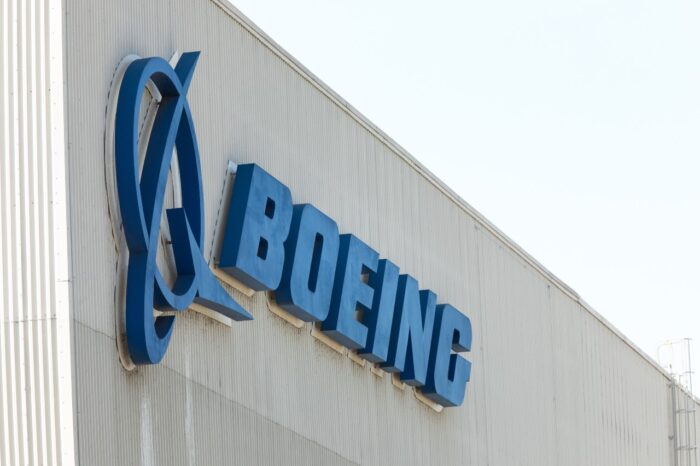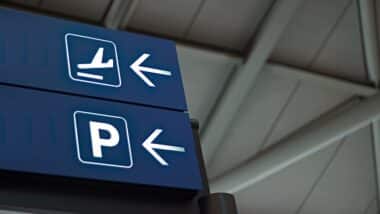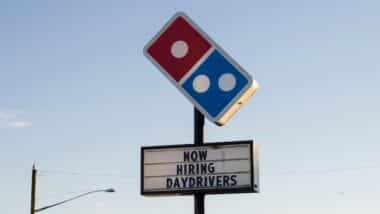
Boeing 737 Max 8 Jets Class Action Lawsuits Overview:
- Who: Boeing, Spirit AeroSystems and Southwest Airlines are all dealing with class action lawsuits revolving around the airlines 737 Max 8 jets.
- Why: Class action lawsuits are related to fallout from two fatal crashes in 2018 and 2019 involving Boeing 737 Max 8 jets.
- Where: The class action lawsuits are being discussed in Oklahoma federal court, the Seventh Circuit and the Fifth Circuit.
Three class action lawsuits revolving around Boeing’s once-troubled 737 Max 8 jets continue to drag on in federal and appeals courts.
In Oklahoma, a federal judge dismissed for good a class action lawsuit arguing Spirit AeroSystems harmed investors by not revealing Boeing was ceasing production of its 737 Max 8 jet following two deadly crashes.
Boeing is the biggest customer for Spirit, an airframe component manufacturer that brought in 50% of its revenue from 737 Max jets between October 2019 and February 2020, according to the order.
Investors filed a complaint in February 2020, arguing Spirit had intentionally misled them about its production schedule for 737 Max 8 jets components following the fatal accidents in 2018 and 2019.
The judge overseeing the case, however, ruled that, while some statements by Spirit may have been misleading, the investors had not demonstrated they were intentionally misled by the company’s executives, or that the statements they made constituted as reckless.
“In the securities fraud context, recklessness is a high bar,” the judge said. “It is something akin to conscious disregard. Allegations of conduct that amount to negligence or even gross negligence will not suffice.”
Boeing, Southwest Ask Court To Dismiss Class Action Claiming Passengers Overcharged
In the Fifth Circuit, meanwhile, Boeing and Southwest Airlines recently implored the court in separate briefs to dismiss a class action lawsuit filed by passengers who argue they were overcharged for flights on the 737 Max 8 jets.
Passengers claim they were charged too much for the flights given the associated safety risks, which they argue Boeing and Southwest conspired to keep hidden from them.
Boeing and Southwest have both challenged the passengers’ theories of being directly harmed while arguing that 95% of the class tickets were sold for flights that weren’t on 737 Max 8 jets.
Passengers want to represent a class of anyone who, over an 18-month period, paid for a plane ticket that flew on a route that was ever scheduled to a Boeing 737 Max 8 jet even if they weren’t flying on one themselves.
Further, the companies argue determining who is eligible to be part of the class would require a large amount of individualized inquiries, and that the district court had green lighted an “internally inconsistent and artificially homogenized approach to damages that failed to account for differences among class tickets.”
Boeing Cannot Escape Class Action Claiming Company Made False, Misleading Statements About 737 Max 8 Jets
Meanwhile, a Seventh Circuit panel told Boeing it could not escape a class action lawsuit filed by shareholders claiming the company made false and misleading statements about the 737 Max 8 jets in the years prior to the fatal accidents.
Boeing had been attempting to use its bylaws to get out of the complaint, which has shareholders making federal derivative claims against the airline and its board of directors and officers.
The class action lawsuit had previously been dismissed by a Northern Illinois judge in June 2020 due to a forum selection clause in Boeing’s bylaws which established the Delaware Chancery Court as the “sole and exclusive forum” for claims such as those brought by the shareholders.
The Seventh Circuit panel, however, determined that the bylaw was unenforceable in this case, ruling it contradicts with federal securities law and Delaware corporation law.
Do you believe Boeing harmed investors, shareholders and passengers? Let us know in the comments!
The Boeing 737 Max 8 Jets Class Action Lawsuits are Seafarers Pension Plan v. Robert Bradway, et al., Case No: 20-2244, in the U.S. Court of Appeals for the Seventh Circuit; Earl et al., v. The Boeing Co. et al., Case No: 21-40720, in the U.S. Court of Appeals for the Fifth Circuit; and Meitav Dash Provident Funds and Pension Ltd. et al., v. Spirit AeroSystems Holdings Inc. et al., Case No: 4:20-cv-00054, in the U.S. District Court for the Northern District of Oklahoma.
Don’t Miss Out!
Check out our list of Class Action Lawsuits and Class Action Settlements you may qualify to join!
Read About More Class Action Lawsuits & Class Action Settlements:
- American Airlines Federal Credit Union $1.5M Class Action Settlement
- Uber IPO Class Action Adds New Claimants Despite Company Protests
- Class Action Alleging Southwest Sold Tickets on Dangerously Faulty Boeing Planes Is Certified
- Southwest Endangered, Overcharged Passengers for Risky 737 Max Flights, Says Class Action















2 thoughts onBoeing 737 Max 8 Class Action Lawsuits Drag On Over Actions Leading Up To And Following Doomed Flights
I, surely among others, bought Boeing stock after Muilenburg publicly stated the aircraft had no engineering problems. That was a bold-faced lie.
Add me